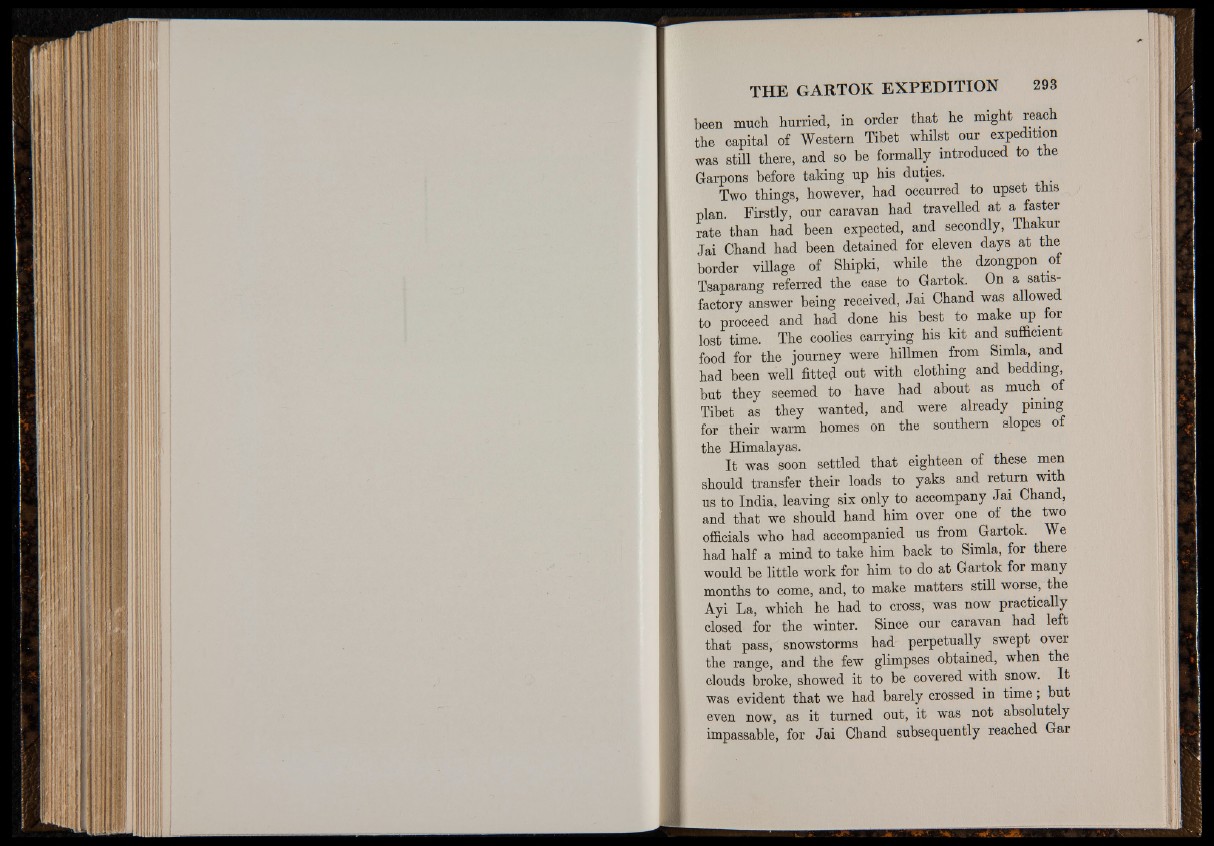
been much hurried, in order that he might reach
the capital of Western Tibet whilst our expedition
was still there, and so be formally introduced to the
(tarpons before taking up his duties.
Two things, however, had occurred to upset this
plan. Firstly, our caravan had travelled at a faster
rate than had been expected, and secondly, Thakur
Jai Chand had been detained for eleven days at the
border village of Shipki, while the dzongpon of
Tsaparang referred the case to Gartok. On a satisfactory
answer being received, Jai Chand was allowed
to proceed and had done his best to make up for
lost time. The coolies carrying his kit a n d sufficient
food for the journey were hillmen from Simla, and
had been well fitted out with clothing and bedding,
but they seemed to have had about as much of
Tibet as they wanted, and were already pining
for their warm homes on the southern slopes of
the Himalayas.
It was soon settled that eighteen of these men
should transfer their loads to yaks and return with
us to India, leaving six only to accompany Jai Chand,
and that we should hand him over one of the two
officials who had accompanied us from Gartok. We
had half a mind to take him back to Simla, for there
would be little work for him to do at Gartok for many
months to come, and, to make matters still worse, the
Ayi La, which he had to cross, was now practically
closed for the winter. Since our caravan had left
that pass, snowstorms had perpetually swept over
the range, and the few glimpses obtained, when the
clouds broke, showed it to be covered with snow. It
was evident that we had barely crossed in time, but
even now, as it turned out, it was not absolutely
impassable, for Jai Chand subsequently reached Gar